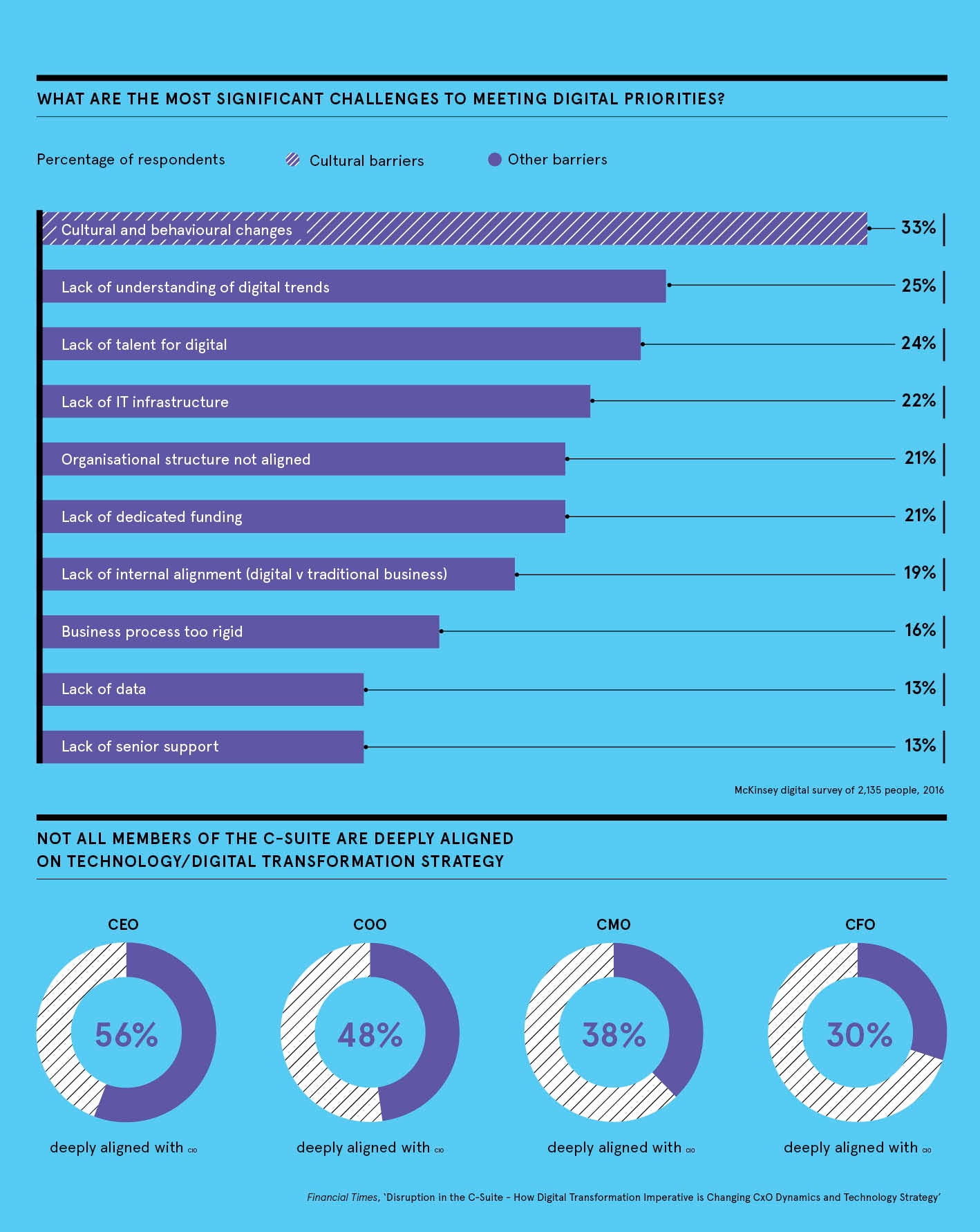A report by AppDirect shows 79 per cent of companies are currently undertaking a digital transformation, yet the study found 90 per cent of businesses face major challenges doing so.
It’s clear there can be serious obstacles and pitfalls from embarking on ambitious digital transformation initiatives that don’t fully prepare for the challenges created from such a fundamental business change. Unsuccessful initiatives have the potential to not just drastically slow down or undo a transformative process but also cause an organisation to waste millions of pounds.
Alex Fishlock, chief executive of Catapult CX, an agile and DevOps consultancy with practitioners who help organisations modernise their IT, has seen countless organisations experience major transformation failures.
While significant, multi-year transformations may appear on the surface to be an effective approach, once these one-off projects are completed, the result may not be fit for purpose as the business landscape has changed.
Businesses should adopt an agile approach to digital transformation, which allows companies to change quickly and react to customer demands
“To succeed, businesses should adopt an agile approach to digital transformation, which allows companies to change quickly and react to customer demands. By creating an environment where continuous learning and improvement can thrive, organisations can constantly evolve,” says Mr Fishlock.
Legacy processes can get in the way of evolution; companies need to change to become primarily focused on customer value and ensuring the delivery cycle time in that value stream is fully understood. Catapult CX can support companies to optimise for speed and enable the business to re-engineer legacy processes and focus on creating more effective value streams.
If the business does not have an appropriate forward-thinking culture, it will be an uphill struggle to make this process a success. It’s vital for companies to bridge the gap between IT and the business as a whole to enable digital transformation, which in practice will mean aligning the organisation around value streams, necessitating significant organisational restructure.
By prioritising around value streams, new features can be delivered more rapidly, on an hourly or daily basis rather than commonly adopted quarterly schedules, helping the company culture to evolve, which subsequently forces the technology to catch up with the cultural shift.
Creating multidisciplinary teams that hold both skilled business and IT professionals can remove the traditional silos which limit communication and effective collaboration. Other staff members involved in revenue creation should also play a role in this team so insights from different business areas can be understood directly from those who are closest to the customer and have practical knowledge.
Enabling staff to receive feedback directly from the customer can then be fed back to corporate leadership and ultimately inform the wider business strategy and help deliver a great customer experience.
As long as the focus remains on rapid delivery, in time all the rest will follow. Teams will become empowered, energised and excited, and the organisation will continually improve and become innovative.
In more connected organisations that are able to innovate and deploy successful releases faster, leaders and staff alike will realise the value of this improved speed. After only a few releases have been quickly deployed, IT can build credibility with the business function, which establishes a mutual level of confidence and closer collaboration that leads to both IT and the business being able to co-create value.
A strong relationship between IT and the business is essential, especially in the current age of innovation when companies can often feel the need to buy the latest tech and then look for where it can provide the most value for their business.
Practical business benefits are not delivered simply by adopting new technology. Working practices must be established to recognise the value of continuous innovation; the right work culture delivers benefit to the business and staff alike.
Businesses need to continually ask themselves what technology should they deploy to improve the customer experience and what technology is available to support the business in acquiring and retaining new clients.
Their significant and diverse experience delivering business benefit through digital transformation sets Catapult CX apart from other players in the IT consultancy space. Catapult CX has also helped clients fix massive legacy systems that were slowing them down and making them less competitive.
“For more than 20 years, we’ve focused on helping clients resolve serious challenges and found many of their problems could have been prevented long before they became major incidents, through improving engineering quality, delivering small incremental changes and creating a culture that values continuous learning, continuous improvement and continuous delivery,” says Mr Fishlock.
“We know intimately both the technical and business problems associated with poor-quality systems. Therefore, we are ideally placed to work with businesses to create an agile way of working for their staff and become a partner in implementing this culture throughout the organisation. Our core offering is truly based on our history and our proven experience.”
For more information, please visit catapult.cx

